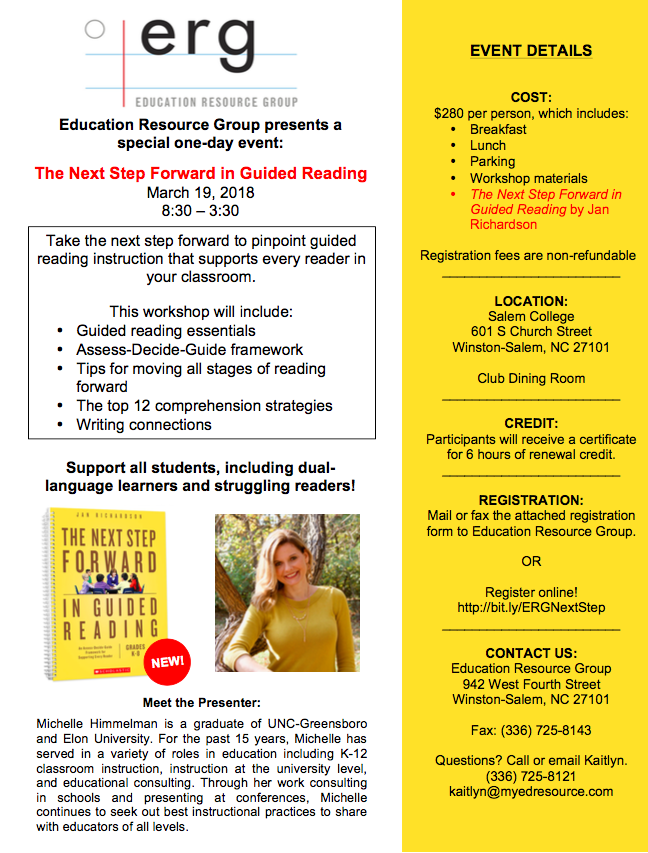


The Next Step Guided Reading framework is a research-based, comprehensive, small group lesson design that contains explicit and systematic reading instruction (Richardson, 2009, 2016). What is the Next Step Guided Reading Framework? These three elements (differentiated instruction, scaffolding, and gradual release) are supported by research and embraced by Structured Literacy. During guided reading a teacher meets with a small group of students and differentiates instruction by targeting specific learning needs, providing appropriate scaffolding, and gradually reducing support to promote independence. Informed by 40 years of research drawing from cognitive science and linguistic principles, guided reading supports all readers, including striving, advanced and English learners (Pearson 2019, Scharer 2019, Clay 2001, 2005, Fountas & Pinnell 2017). Researcher Anita Laquinta describes guided reading as one of the “most important contemporary reading instructional practices in the United States” (Fawson & Reutzel, 2000). They also agree that language comprehension and word recognition are essential. Although these models illustrate the reading process in different ways, they each agree that beginning readers need a foundation in phonemic awareness and phonics to become skilled at decoding unfamiliar words. The most commonly referenced are the Simple View of Reading (Gough & Tunmer 1986), The Reading Rope (Scarborough 2001), and the Active View of Reading (Duke and Cartwright 2021). Scientific research has yielded several models that attempt to simplify and explain the complexity of the reading process. What are the Common Models of the Reading Process?

It is a “vast, unfinished, continuously growing, and evolving interdisciplinary body of scientifically based research about reading and issues related to reading and writing.” Because reading science continues to evolve, the “science” of reading is subject to numerous interpretations when it’s applied to reading instruction (Seidenberg, Borkenhagen, and Kearns, 2020, Afflerbach, 2022, Aukerman, 2022, Thomas, 2022).

This paper will briefly review the major tenets of the “Science of Reading.” It will then present the Next Step Small Group lesson framework (Scholastic, 2016) and explain how the lesson components align with current reading science and research.Īccording to the Science of Reading Defining Guide, the Science of Reading is not a reading program, a one-size-fits-all program of instruction, or a single component of instruction. Next Step Forward Guided Reading Framework


 0 kommentar(er)
0 kommentar(er)
